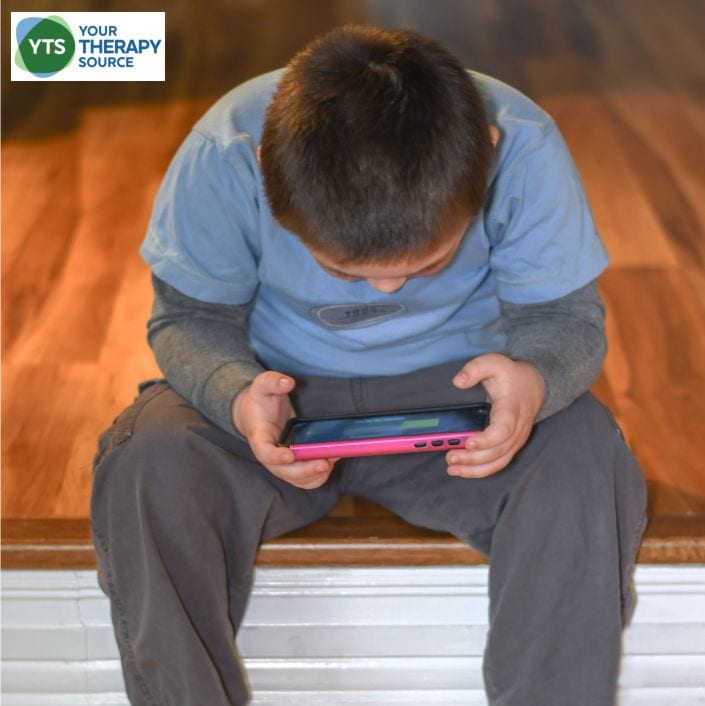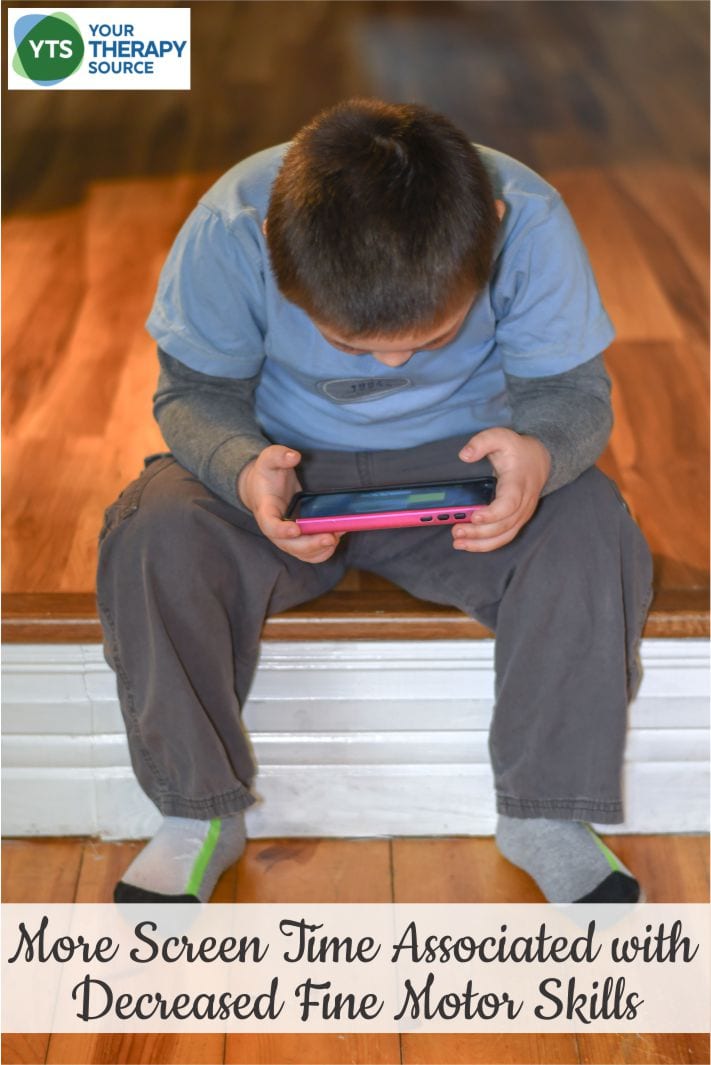More Screen Time Associated with Decreased Fine Motor Skills

As technology and screens take a stronger hold on our children’s lives every day, it is important to analyze the relationship between screen time and fine motor skills in preschoolers. Teachers and therapists continue to report that when they observe young children, motor skill development is lacking. Some hypothesize that this is due to an increase in screen time instead of open-ended free play outside of the school day or prior to entering the school system.
What does the research say?
There is more and more research slowly emerging on this topic. None of it has determined a cause and effect relationship between too much screen time and decreased motor skills. Although there is research that supports a negative association between screen time and language, cognitive and motor skills.
Recently, the Journal of Sport and Health Science published research examining the fundamental motor skills, screen-time, and physical activity in preschoolers. The results are quite interesting.
To determine fundamental motor skill abilities, a total of 126 children (ages 3-4 years old) were evaluated with the Test of Gross Motor Development-3rd edition (TGMD-3) and the Movement Assessment Battery for Children-2nd edition (MABC-2). Of those children, 88 wore accelerometers for 7 days to determine physical activity levels. Parents completed a screen time survey to determine screen time usage.
Results of the Study on Screen Time and Fine Motor Skills in Preschoolers
After data analysis, the study indicated the following about the characteristics of the participants:
- children engaged in an average of 5.1 hours of screen time per day.
- when compared to girls, boys scored higher on the TGMD-3 total scores, ball skills, and MABC-2 aiming and catching scores.
- children engaged in about 5.9 hours per day of total physical activity of which 1.7 hours was moderate to vigorous physical activity.
- when compared to girls, boys participated in significantly more total physical activity, moderate to vigorous physical activity and significantly less sedentary behavior.
When analyzing the association between screen time and motor skills the researchers determined that:
- children’s total screen-time was inversely related to MABC-2 manual dexterity skills, meaning the children who participated in more screen time had lower fine motor skills.
- there was not a significant relationship between screen time and TGMD-3 total scores (locomotor skills, ball skills).
- there was no association between screen time and physical activity levels.
- children with better fundamental motor skills participated in more physical activity.
Conclusion
The researchers concluded that a higher amount of screen time was related to lower fine motor skills. Screen time amount was not related to fundamental motor skills in the 3-4-year-old children in the study. Longitudinal studies were recommended to determine later outcomes.
Reference
Webster, E. K., Martin, C. K., & Staiano, A. E. (2019). Fundamental motor skills, screen-time, and physical activity in preschoolers. Journal of sport and health science, 8(2), 114-121.
Read more on Screen Time and Fine Motor skill Development
SCHOOL-RELATED FINE MOTOR SKILLS – UNDERSTANDING THE COMPONENTS
FINE MOTOR SKILLS ACTIVITIES AND IDEAS
EXCESSIVE SCREEN TIME FOR CHILDREN – WHAT DOES THE RESEARCH SAY?






